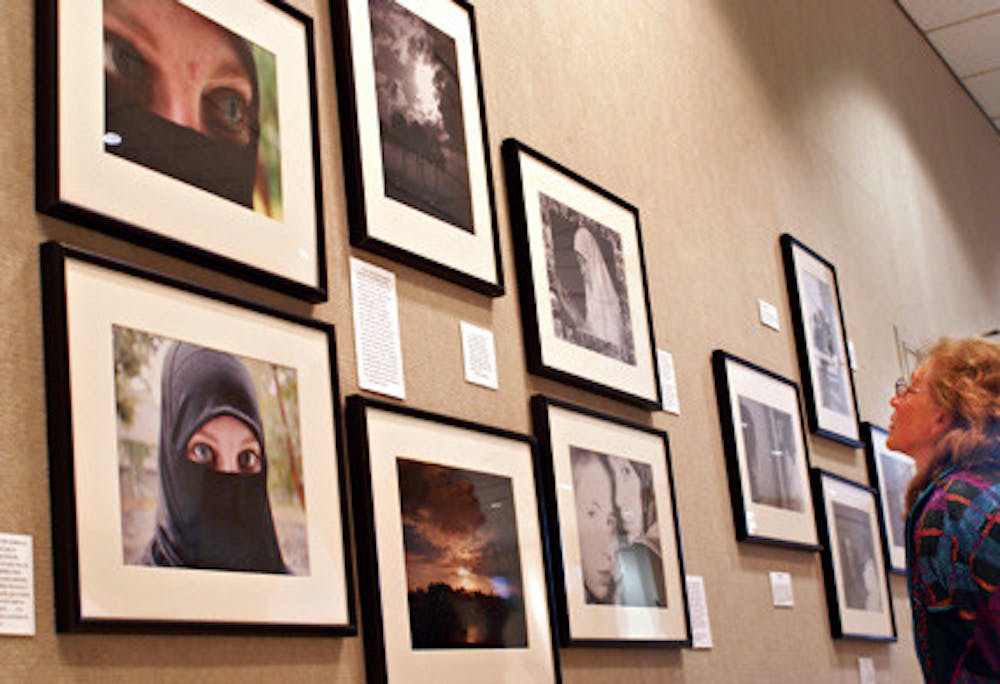The 28 photos displayed on the wall of the Reitz Union show the faces and lives of people who, according to some, often face adversity in society.
The photos, which depict the lives of Muslims, were taken as part of a nationwide photography project called Unseen America and will be on display until Monday.
Liz Gottlieb, the coordinator of UF's exhibit, said the project first started in New York City, when immigrant workers were prompted to start documenting their lives through photography.
Now the project is used by minority groups who have had to fight stereotypes and prejudice in the past, she said.
The five UF students who took the photos were all members of Islam on Campus and hoped to dispel the different stereotypes placed on Muslim-Americans in a post-Sept. 11 society.
The pictures display different aspects of the photographers' lives, using family and friends as muses. Many center on the Islamic religion showing moments of prayer and time spent in celebration during various Islamic holidays.
"Overall we wanted to show that Muslims are like everyone else," said UF graduate student Muhsin Aziz Ahmad.
Although Ahmad, who is studying food science and human nutrition, said he was an amateur when it came to photography, he carried his camera with him everywhere in case he came across the perfect moment.
He said he went "picture crazy," taking about 1,000 pictures between August and December before he found the six pictures he wanted to submit.
Aziz, who said his theme was family, took many pictures of his father, who is a doctor.
Asaad Musda, a UF graduate student studying electrical engineering, said he has always been interested in photography and saw the project as a way to show off his skill as well as the daily lives as Muslims.
"There is a basic stereotype that Muslims are terrorists," he said.
Graduate student Mohammad-Eslam Mohammed agreed.
"People usually see our religion as violent and full of hatred," he said.
Mohammed hoped to break this myth by showing pictures of Muslims celebrating Eid, the holiday that signifies the end of Ramadan and fasting.
"They're greeting one another warmly," he said.






